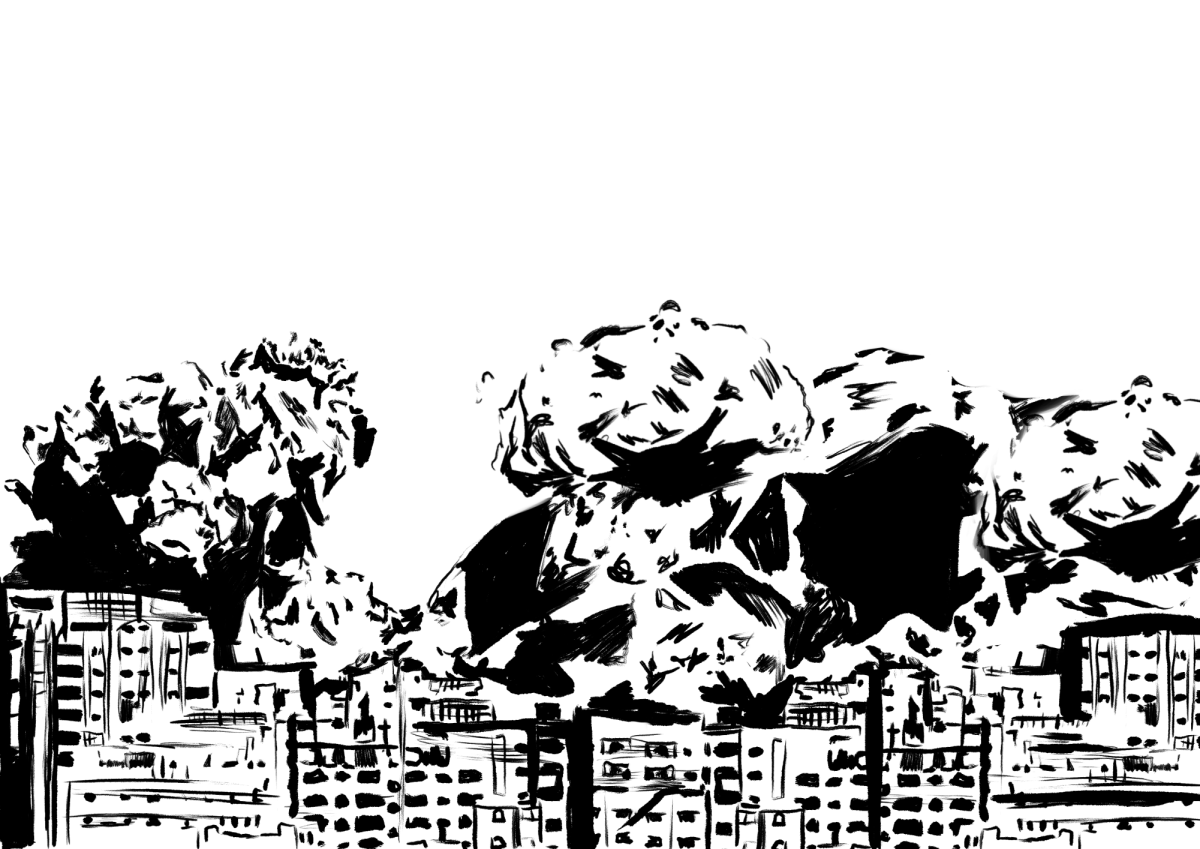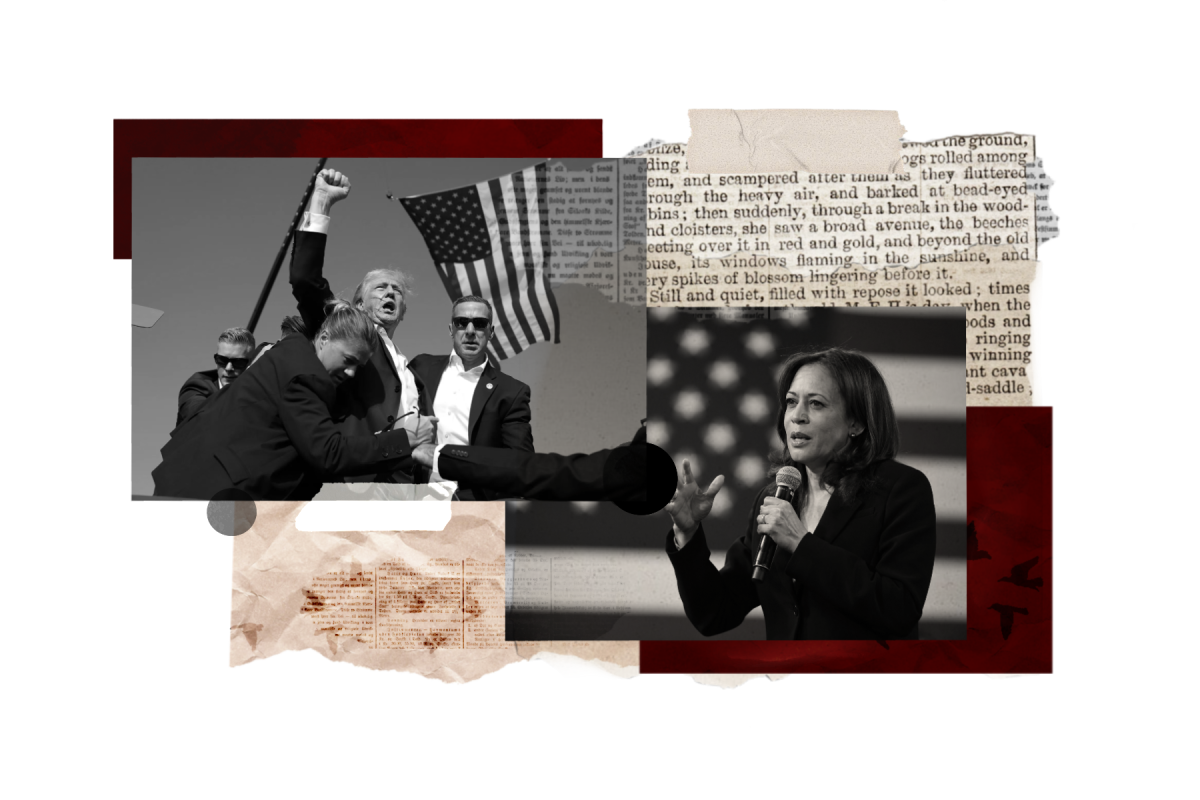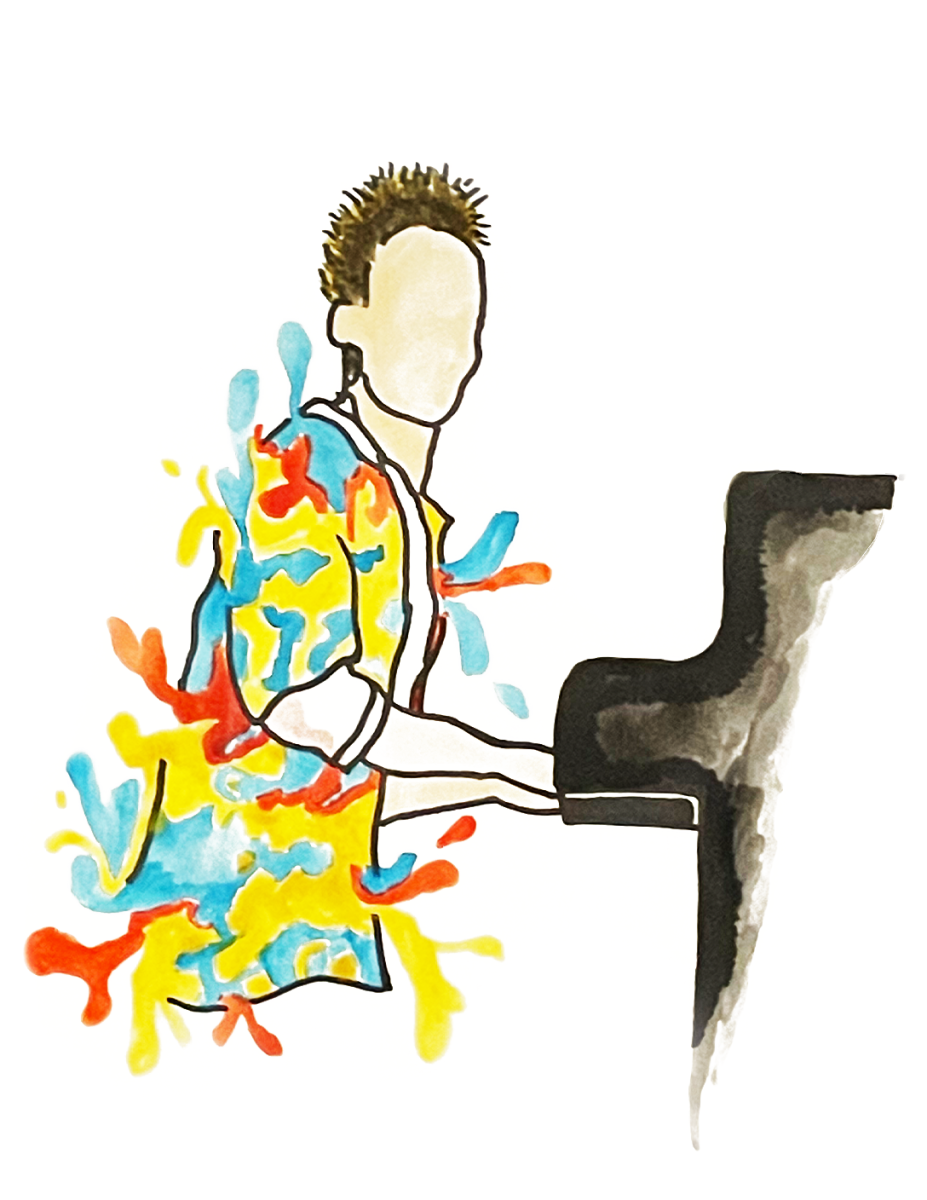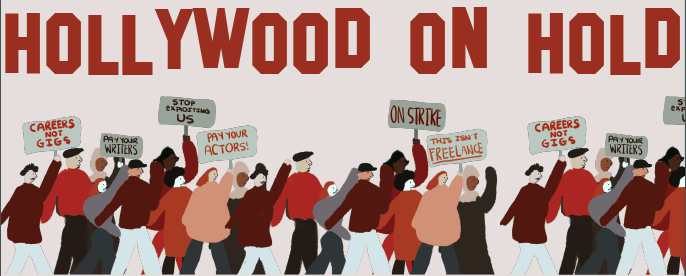For the first time in 60 years, Hollywood writers and actors went on strike in retaliation against unfair wages and artificial intelligence programs replacing script-writers and voice actors.
The strike put thousands of people out of work, along with shutting down major talk shows, postponing movie releases, and canceling seasons that were to come out within the next two years.
“Writers and actors are extremely underpaid,” senior Owen Noble said. “Thinking about college, I’ve been seriously considering film. The only reason holding me back is that it’s not only incredibly difficult to get into the industry, but even if you do, it’s near impossible to make a living.”
The Writers Guild of America (WGA) — representing 11,500 screenwriters went on strike on May 2. The Screen Actors Guild-American Federation of Television and Radio Artists (SAG-AFTRA) followed on July 14.
WGA and SAG-AFTRA represent the major streaming services, such as Netflix, Disney, Paramount, Universal Studios, and others.
Hollywood productions came to a halt when actors walked off sets and writers refused to continue with scripts — picket lines formed outside of big studios in Hollywood.
Talk shows, such as Jimmy Fallon’s “The Tonight Show,” went off the air following the delay of film releases.
Even this year’s Tony Awards commenced without writers or any written material.
Many popular television series were put on hold during the strike, such as season five of “Stranger Things,” season two of “The Last Of Us,” season two of “House of the Dragon,” and season six of “The Handmaid’s Tale.”
Directors postponed numerous upcoming movies, such as the “Avatar” series and the Marvel continuations. Warner Bros delayed the releases of “The Batman II,” “Dune: Part Two,” and “Godzilla x Kong: The New Empire.”
Most of the criticism studios received was directed towards major streaming services and millionaire/billionaire chief executives for not paying their workers the sufficient wages they deserve.
“Streaming services should definitely be paying people more in residuals,” Eleanor said. “It’s unfair that [the productions] become their property and that actors, who put so much work and time into these projects, do not get to see accurate rewards for it.”
CEOs of large streaming services did not initially want to give in to the union’s demands.
Disney CEO and multi-millionaire Bob Iger referred to the writer’s contract demands as “unrealistic.’
The CEO’s initial plan was to ignore the strike until the writers started “losing their apartments,” an anonymous executive said.
This was until they realized that the strikers would not put up an easy fight and that viewers were ready to see their favorite shows again.
The Hollywood shutdown ended on Sept. 26 when the WGA board members approved a contract agreement with studios.
“This deal could have been made six months ago,” said David Scarpa, Writers Guild of America member. “It was just a matter of, in a sense, testing whether or not we had the fortitude to sustain a strike for six months or however long.”
While the writers are getting back to work, many actors are still on strike with no negotiations in sight, meaning a slow return of upcoming releases.
“We will certainly see a drought in movies for a while,” Owen said. “Viewership will dwindle, and as someone who works at a theater, I figure a lot of theaters will be in trouble. I don’t blame the striking workers for that. I blame the companies.”
Most upcoming movies and television series still need to be back on track, with their release dates postponed.
The exploitation of artists in the film world will continue to put viewers’ favorite experiences at risk. As technology advances, so will the use of AI in the art world. The lasting effects of the strikes reflect a historic halt in Hollywood production.

































